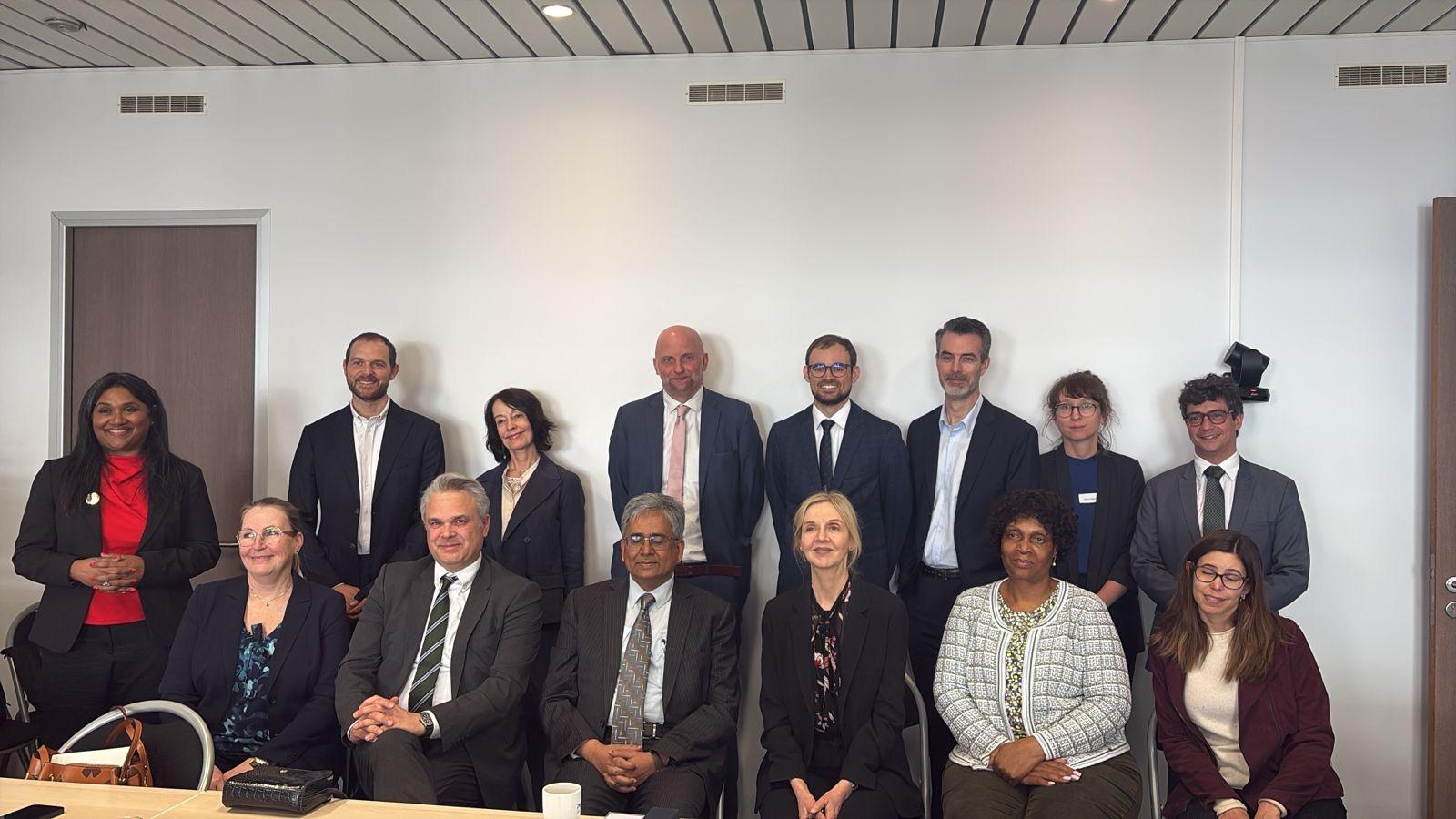Sustainable Industrial Transitions: Building global partnerships for inclusive green competitiveness.
On March 25, the Secretariat for the Leadership Group for Industry Transition (LeadIT) convened a high-level roundtable in Brussels, hosted by the Embassy of India to Belgium, Luxembourg, and the EU, and Sweden’s Permanent Representation to the EU. The Chatham House-style event brought together government representatives from emerging economies, EU institutions, industry leaders, and experts to explore how to build inclusive global partnerships for sustainable industrial competitiveness.

Read the key takeaways in full
Sustainable Industrial Transitions: Building global partnerships for inclusive green competitivenessThe roundtable focused on the global implications of the EU’s Clean Industrial Deal and explored opportunities to align green industrial policy with shared climate objectives, while balancing national competitiveness concerns. The event built on momentum from the 2024 LeadIT roundtable in Brussels, advancing discussions in a rapidly evolving policy context shaped by G20 agendas, COP30 expectations, geopolitical shifts, and revised national climate strategies.
Summary of discussions
-
Fair and Inclusive Global Partnerships: an emphasis on building equitable, mutually beneficial international collaborations that account for different development stages and national priorities.
-
Balancing Ambition and Support: recognition of the EU’s climate leadership, alongside the need for mechanisms to support partner countries affected by new green industrial policies.
-
Technology, Finance, and Just Transition: a desire for stronger cooperation on technology transfer, climate finance, and shared value chains to ensure a fair and inclusive green transition.
-
From Commitment to Implementation: an urgency to operationalise high-level agreements through coordinated investments, technological pathways, and innovative partnership models like CTIPs.
Conclusion
The roundtable underlined that the global green industrial transition must be both ambitious and inclusive. Achieving this balance requires continued investment in fair partnerships, coherent policy frameworks, and joint action across public and private actors. The race to decarbonize cannot afford to leave any region behind, and cooperative models that reflect common but differentiated responsibilities are essential to realizing this vision.
This summary reflects the discussions that took place on 25 March and does not necessarily reflect the views of all participants, nor should it be taken as a reflection of LeadIT’s official position.
